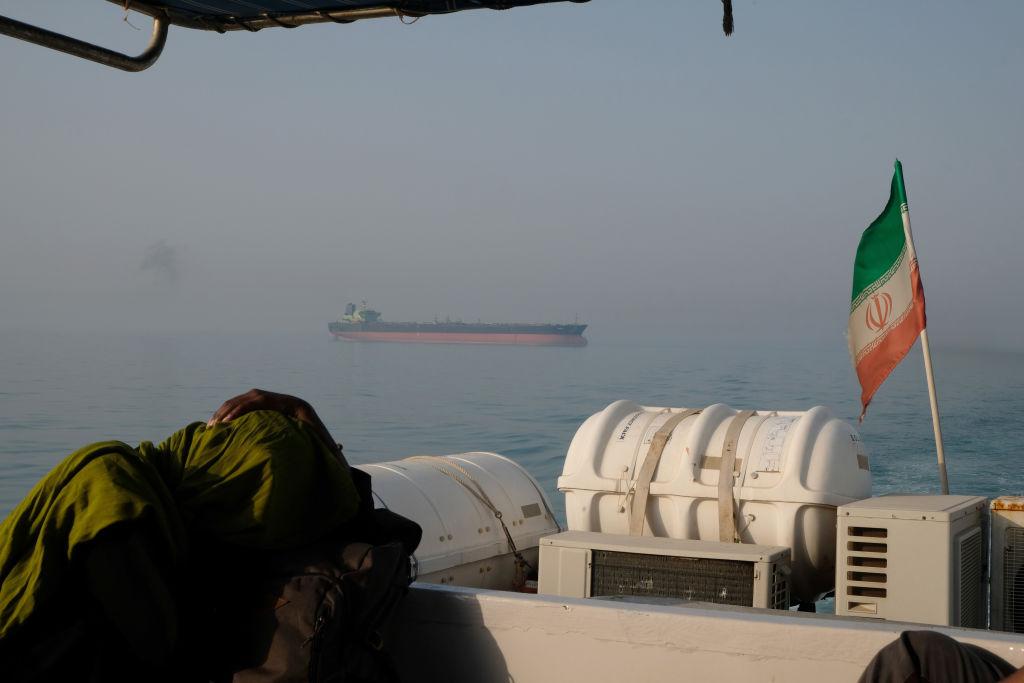Why Australia joined the US-led coalition in the Strait of Hormuz
Posted By Ian Dudgeon on August 27, 2019 @ 15:00

There are two strong reasons behind the Morrison government’s decision [1] on 21 August to join the US-led International Maritime Security Construct (IMSC) in support of freedom of navigation in the Strait of Hormuz.
The first is our near-total dependence, as an island nation, on guaranteed freedom of navigation for international shipping for fundamental trade and economic reasons. That guarantee, both in principle and in practice, applies as much to the Strait of Hormuz and adjacent Gulf waters as to other maritime areas of importance to Australia, including the South China Sea and critical passages to our north.
The second is the depth of our alliance relationship with the US. The US pressed Australia hard for an early commitment. With only two other nations—the UK and Bahrain—reluctantly on board, Australia’s participation was important to boost both the international viability and visibility of the IMSC.
It was a request we couldn’t refuse, notwithstanding the lack of clarity about the IMSC’s structure and rules of engagement.
Europe’s reluctance to join the IMSC mostly hinges on concerns that President Donald Trump will exploit it to interdict legitimate Iranian commercial shipping vessels as part of his sanctions campaign against Iran. To distance itself from that possibility, the EU is considering options such as joining the IMSC on the condition that it transition to European leadership or establishing a separate taskforce.
Aware of European concerns and pending finalisation of the IMSC’s structure, Prime Minister Scott Morrison has largely modelled Australia’s rules of engagement in the operation on those of the UK. The prime minister emphasised [2] that our national interests will dictate all decisions and reaffirmed our commitment to international maritime law. He also explained that Australia’s commitment to the IMSC and Trump’s campaign of putting ‘maximum pressure’ on Iran are ‘completely separate issues’.
There’s been no rush, however, to send Australian assets to the region. Morrison announced that a RAAF P-8 maritime surveillance aircraft would be deployed to the Middle East late this year and a RAN frigate early next year, both under Operation Manitou, our longstanding program for supporting counterpiracy and counterterrorism efforts in the Gulf region. Operations in support of the IMSC would be additional tasking. This hurry-up-and-wait approach suggests that Australia’s commitment is at least as much symbolic as operational.
In signing up to the IMSC, the Australian government is well aware that it is entering an international political minefield. The Persian Gulf is a major international arena where any interdiction of shipping, or maritime or other provocations, by any party could trigger an escalation of tensions that tests the boundaries of Australia’s planned involvement.
Iran’s oil exports are a prime US sanctions target that Trump wants to reduce to zero as part of his maximum pressure campaign. They are also Iran’s major source of foreign currency. US sanctions have hit Iran’s exports and foreign earnings hard. While the Europeans established INSTEX (Instrument in Support of Trade Exchanges) to technically facilitate Iran’s oil sales and bypass US sanctions, it has been largely ineffective so far.
Tougher US sanctions triggered the commencement in June of Iran’s harassment of selected foreign shipping in the Gulf. Tehran’s aim is twofold: to signal the potential vulnerability of foreign oil shipments through the Gulf if Iran is denied its right to ship its oil, and to pressure the Europeans and other parties to implement an effective INSTEX. The situation escalated in July with the UK’s seizure of the Iranian super tanker Adrian Darya 1 off Gibraltar and Iran’s tit-for-tat seizure of the UK-flagged tanker Stena Impero in the Gulf.
The Adrian Darya 1 has been released but the Stena Impero is set to remain in Iranian custody until the Adrian Darya 1 reaches its as yet unknown destination. Adding to this saga is the explicit US threat [3]of punitive measures against any countries that buy that ship’s oil.
The seizure of the Stena Impero was a significant factor in the UK’s decision to join the IMSC [4]. As an island nation that is dependent on shipping through the Gulf area, it was compelled to act. However, being aware of the potential for conflict of interest, it will operate under its own rules of engagement, quite separately to Trump’s sanctions campaign.
With its recent harassment of foreign oil shipping in the Gulf, Tehran has made its point. As the Europeans expected, Iran held off on any further interdiction of commercial shipping in the lead-up to the G7 summit in France, which concluded yesterday.
The functionality of INSTEX and Europe’s commitment to the Iran nuclear deal (the Joint Comprehensive Plan of Action, or JCPOA) were major discussion items on the summit’s sidelines. The surprise visit of Iran’s foreign minister, Javad Zarif, at French President Emmanuel Macron’s invitation, for separate meetings with France and other JCPOA signatories, added significant gravitas to those discussions. Zarif did not attend the summit itself or seek to meet Trump, but Macron offered [5] to broker a future meeting between Trump and Iranian President Hassan Rouhani to work towards settlement of the US–Iran crisis.
Iran’s next moves will depend on what comes from the discussions on INSTEX and the JCPOA—and from the proposal for a Trump–Rouhani meeting.
Correction: An earlier version of this piece named Iran’s supreme leader Ali Khamenei as the country’s president instead of Hassan Rouhani.
Article printed from The Strategist: https://aspistrategist.ru
URL to article: /why-australia-joined-the-us-led-coalition-in-the-strait-of-hormuz/
URLs in this post:
[1] Morrison government’s decision: https://www.pm.gov.au/media/australia-joins-international-maritime-security-construct-gulf
[2] emphasised: https://www.pm.gov.au/media/press-conference-parliament-house
[3] explicit US threat : https://www.wsj.com/articles/u-s-warns-greece-against-hosting-iran-oil-tanker-11566285957
[4] UK’s decision to join the IMSC: https://www.gov.uk/government/news/uk-joins-international-maritime-security-mission-in-the-gulf
[5] offered: https://on.ft.com/2ZpVYI1
Click here to print.